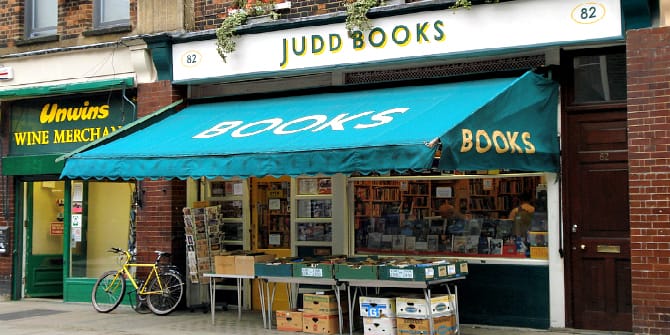Escaping Costs of Textbooks

Nikheel Gorolay, MA Intensive South Asian Studies
Freshers can be a strange time. You’ve spent a week settling into your new digs, getting to know people and making friends, and perhaps even spending several nights moving your feet on a sticky dancefloor. And then you come across that reading list you picked up a few days ago and realise that you’ve actually got some work to do.
In the rush to get books, the library can run out of copies quite quickly, so you may find yourself exploring other methods, including trying to find the material online, or purchasing a copy for yourself.
There’s a deluge of options in each case, so here’s a few suggestions on how to bag yourself the best bargain or not spend a penny at all, without compromising on the expansion of knowledge that’ll aid you in getting the best grade possible.
Let’s begin with the online material. Although you’ll find plenty to ponder in the journals the university subscribes to, there’s no reason not to supplement this with additional research.

OAPEN (www.oapen.org) is a good starting point. With an emphasis on the Humanities and Social Sciences, there are also smaller offerings in other disciplines. The catalogue is quite modest, however the site is easy to navigate and you can download books in PDF format for easy reference.
Academia (www.academia.edu) is a platform for academics to upload their research papers and articles. As it happens, people are pretty good at sharing essays that have already been anthologised elsewhere, thus saving you the hassle of having to get a hefty book from the library for the sake of a few pages.
Google Books is a must. There is a huge range of academic literature available, including titles that may be out of print or otherwise difficult to get hold of. Most of the books can only be previewed, so be discerning in your search. Start at the contents page and click on a particular chapter if you know it’s relevant. You should be able to read the entire piece, or almost all of it, without hitting the preview limit. This method is also useful for reading bibliographies for ideas of other, related material to look at.

If you’d rather have a physical copy, then consider the independent bookshops in London. SOAS is well located to take advantage of this trade, with several bookshops within walking distance.
Skoob Books is one of the best. Situated on Marchmont Street at the end of the Brunswick shopping arcade, this underground cavern is a great place for picking up bargains. With selections across all major disciplines, there are sure to be more than a few titles for you to pick up and cross off your reading list. If you can’t find what you’re looking for on the shelves, be sure to ask a member of staff because they have several thousand more titles in the basement, so you don’t necessarily have to leave empty handed. Once you’ve managed to lug your stack of books to the counter, you’ll be greeted with 10% student discount.
Gay’s the Word is another option, and is a short walk from Skoob if you continue heading down Marchmont Street towards Cartwright Gardens. A specialist gay and lesbian bookshop, it offers much in the way of Fiction, Biography, Queer History, Poetry and Pop Culture, which could prove useful to anyone studying Gender or Sexuality as a component of their course. There is, however, no student discount on offer.
Marchmont is the street that keeps on giving, because there’s one more place that’s worth visiting, and that’s Judd Books. If you turn right out of Gay’s the Word, you’ll arrive there within a few steps. The first thing you’ll notice are the boxes of books outside the shop. These are all heavily discounted and offer multibuy incentives, and whilst the range can be slim, it’s always worth a look.
Inside you’ll find a wide choice of titles spread across two floors, primarily covering the Humanities and Social Sciences. If you are heading downstairs then you won’t be able to take your bag (if you have one) with you, but once you’re back upstairs, you’ll be pleased to find that student discount is available.
London is of course a huge city, and there are many more independent bookshops to explore, some of which may not necessarily help you tick titles off your reading list, but are still worth a visit for their quirky and niche offerings. Visit www.thelondonbookshopmap.org for an interactive map and summary of these bookshops.
If you are looking to buy online, then consider Hive (www.hive.co.uk). It’s a marketplace for stock from hundreds of independent bookshops across the country. Standard domestic delivery is free, or you can choose to collect from your local bookshop, and a percentage of each sale even goes to support the same bookshop or another one of your choice. Wordery (www.wordery.com) is another option. An online independent bookseller, it offers free worldwide delivery.
So by now you should have a good idea of how to source and supplement your reading material. Whilst buying brand new books all from one retailer can prove expensive, if you’re willing to commit the time and effort to exploring some of the above options, then you should be able to save yourself a tidy sum and maybe even get the edge on your fellow students. Nice one.



